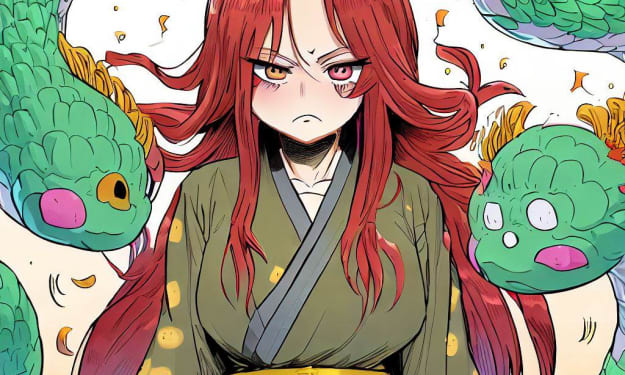The power of comic books nowadays
In contemporary society, comic books have emerged as a powerful medium that captivates audiences of all ages and backgrounds. Once associated solely with geek culture, these colorful publications have transcended their niche origins to become a noteworthy force in popular culture. Through their unique blend of storytelling, artistry, and character development, comic books wield a remarkable power that resonates with readers on multiple levels. As a comic lover, is intriguing to explore how comic books have evolved over time and examine the impact they now exert on individuals and wider society.

In contemporary society, comic books have emerged as a powerful medium that captivates audiences of all ages and backgrounds. Once associated solely with geek culture, these colorful publications have transcended their niche origins to become a noteworthy force in popular culture. Through their unique blend of storytelling, artistry, and character development, comic books wield a remarkable power that resonates with readers on multiple levels. As a comic lover, is intriguing to explore how comic books have evolved over time and examine the impact they now exert on individuals and wider society.
Comic books have a rich history that dates back to the early 20th century, when the first recognizable comic strips appeared in newspapers. Initially, these strips served as witty entertainment, amusing readers with their succinct narratives and humorous illustrations. However, it was the creation of the superhero genre in the late 1930s that truly propelled comic books into the spotlight. Characters such as Superman and Batman captured the imagination of millions, offering compelling tales of heroism, justice, and morality, all conveyed through vibrant illustrations and engaging story arcs.
Over the decades, comic books have expanded their thematic horizons. They have delved into complex narratives, exploring meaningful social issues and providing insightful commentary on the human condition. This evolution has allowed comic books to reach a wider audience and foster a sense of inclusivity, as readers can relate to characters facing challenges similar to their own. The emotional depth and psychological complexity woven into contemporary comic book narratives provide readers with an opportunity for introspection and self-reflection. Whether it's exploring themes of identity, trauma, or personal growth, comic books have become a vehicle for psychological exploration.
One of the most significant aspects of comic books is their ability to cultivate empathy. Through the vivid depictions of characters' emotions and internal struggles, readers are invited to experience a wide range of feelings. This emotional connection fuels empathy, allowing individuals to walk in the shoes of the heroes and villains they encounter within the pages. By empathizing with characters, readers gain a greater understanding of the complexities inherent in the human experience. This enhanced empathy can have a profound impact on personal growth, helping individuals to become more compassionate and understanding in their own lives.
Comic books also serve as a powerful form of storytelling therapy. Storytelling has long been recognized as a therapeutic tool, allowing individuals to process and make sense of their own experiences. Comic books, with their visual narratives and sequential art, offer a unique platform for therapeutic storytelling. They provide readers with relatable characters who face adversity, cope with trauma, and triumph over their challenges. This narrative process can inspire readers to reflect on their own lives, encouraging self-reflection and providing a sense of catharsis.
Furthermore, comic books have assumed a crucial role in promoting mental health awareness and destigmatizing mental illnesses. Many contemporary comic book storylines feature protagonists with mental health conditions, depicting their struggles with empathy and realism. By tackling these sensitive issues, comic books help to normalize conversations about mental health, encouraging dialogue and understanding. This portrayal of mental health challenges within a fictional context not only educates readers but also fosters empathy and reduces the associated stigma.
In addition to their therapeutic benefits, comic books have a significant impact on intellectual development. The integration of visual artistry and written narratives fosters critical thinking and comprehension skills. Readers must navigate the sequential flow of panels, interpret facial expressions, and analyze the relationship between text and imagery. This cognitive exercise stimulates the brain, enhances problem-solving abilities, and improves overall literacy. Moreover, comic books often draw inspiration from various fields, including science, history, and mythology, effectively expanding readers' knowledge and fostering a love for learning.
Comic books have also undergone a remarkable transformation due to the rise of the digital age. With the advent of digital platforms and online communities, comic book enthusiasts can now engage in an extensive network of fandom. These interactions facilitate vibrant discussions, fan theories, and creative collaborations. By connecting individuals worldwide, comic books have become a unifying force, defying geographic borders and bridging diverse cultures. The ability to engage with like-minded individuals fosters a sense of belonging and community, promoting social connections and enhancing well-being.
In conclusion, comic books have evolved into a powerful medium capable of stimulating emotional, intellectual, and psychological growth. Their ability to evoke empathy, nurture therapeutic storytelling, promote mental health awareness, and facilitate intellectual development showcases the profound influence they hold in contemporary society. As an expert psychologist, it is evident that comic books offer readers a unique blend of escapism, entertainment, and psychological exploration. Now more than ever, the power of comic books enriches lives, opens minds, and inspires individuals of all ages to embrace their superhuman potential.
About the Creator
Amanda Freughler
Dutch-born with a German upbringing, I am a culturally-inquisitive individual driven by a voracious appetite for knowledge and diversity. I channel my passion into exploring and understanding various facets of culture.






Comments
There are no comments for this story
Be the first to respond and start the conversation.